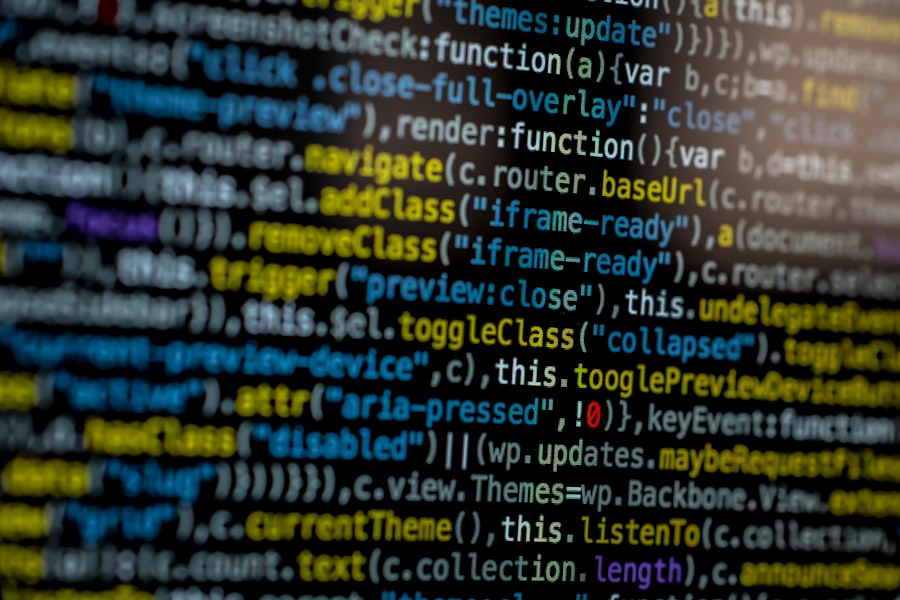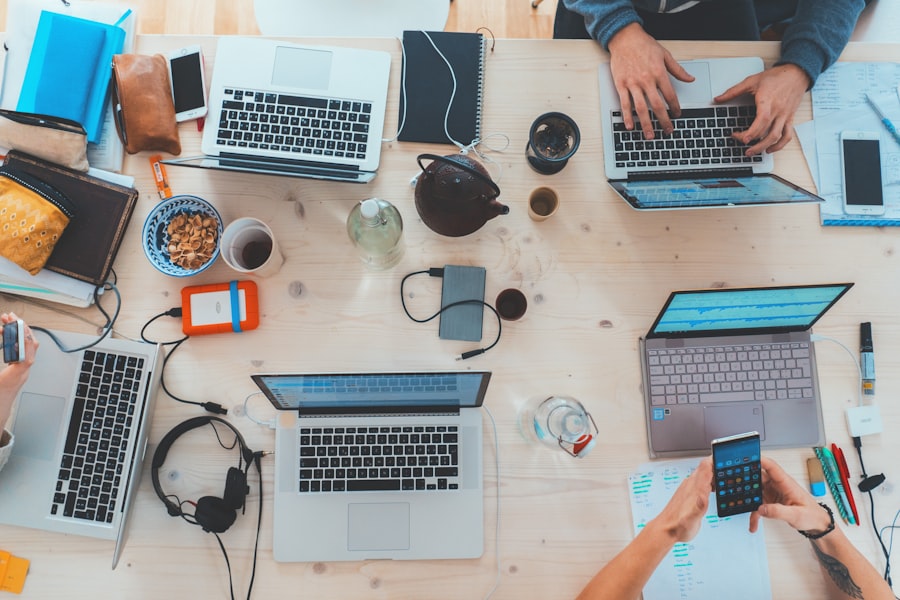Identifying personal strengths and weaknesses is essential for individual growth and development. This process enables individuals to leverage their strong points and address areas needing improvement. Strengths can be recognized by identifying activities that come naturally and are enjoyable, as these often indicate areas of proficiency.
External feedback from colleagues, friends, and family can also provide valuable insights into one’s strengths. Identifying weaknesses requires honest self-evaluation. Individuals should reflect on areas where they face challenges or receive constructive criticism.
Personality assessments and aptitude tests can offer additional insights into strengths and weaknesses. Once identified, this information can be used to establish personal development goals. Exploring new activities and taking on diverse roles in personal and professional settings can lead to self-discovery, potentially revealing hidden talents or areas for improvement.
Seeking guidance from mentors, coaches, or trusted colleagues can provide an external perspective, helping individuals gain a more objective view of themselves. It is crucial to approach this process with an open mind, being receptive to both positive and negative feedback. The identification of strengths and weaknesses is an ongoing process that demands self-awareness and a commitment to continuous learning and personal growth.
This practice enables individuals to make informed decisions about their personal and professional development, ultimately leading to improved performance and satisfaction in various aspects of life.
Key Takeaways
- Identifying your strengths and weaknesses is the first step towards personal development.
- Setting clear and achievable goals is crucial for personal growth and development.
- Seeking feedback and constructive criticism from others can provide valuable insights for improvement.
- Practicing self-reflection and mindfulness can help in understanding oneself and making positive changes.
- Seeking opportunities for growth and learning is essential for personal and professional development.
- Developing effective communication and interpersonal skills is important for building strong relationships and achieving success.
- Building resilience and adaptability is crucial for overcoming challenges and thriving in a constantly changing environment.
Setting Clear Goals for Personal Development
Specificity is Key
When setting goals, it’s important to be specific and realistic. Instead of setting vague goals like “improve communication skills,” try setting specific, measurable goals such as “participate in a public speaking workshop and deliver a presentation at work.” This allows you to track your progress and stay motivated.
Realism and Momentum
Additionally, setting realistic goals is important for maintaining momentum and avoiding frustration. It’s okay to aim high, but be sure to break down larger goals into smaller, achievable steps. This can help you stay focused and make steady progress towards your ultimate objectives.
Timelines and Accountability
Furthermore, setting a timeline for achieving your personal development goals can provide a sense of urgency and accountability. By establishing deadlines for each step of the process, you can create a sense of structure and momentum. This can help prevent procrastination and keep you on track towards achieving your goals.
Review and Adjust
It’s also important to regularly review and adjust your goals as needed. As you make progress, you may find that your priorities or circumstances change. By regularly reassessing your goals, you can ensure that they remain relevant and aligned with your personal development needs.
In conclusion, setting clear, specific, realistic, and time-bound goals is essential for personal development.
Seeking Feedback and Constructive Criticism

Seeking feedback and constructive criticism is a valuable tool for personal development. Feedback from others can provide valuable insights into your strengths and weaknesses, as well as opportunities for growth. One way to seek feedback is to ask for it directly from colleagues, mentors, or friends.
Be specific about the areas you would like feedback on, and be open to receiving both positive and negative feedback. It’s important to approach feedback with an open mind and a willingness to learn from it. Additionally, seeking feedback from multiple sources can provide a more well-rounded perspective on your performance and behavior.
Another way to seek feedback is through self-assessment tools or 360-degree assessments. These tools can provide a more comprehensive view of your strengths and weaknesses by gathering feedback from multiple sources, including colleagues, supervisors, and subordinates. This can help you gain a better understanding of how others perceive your performance and behavior.
Additionally, seeking feedback from diverse sources can help you identify blind spots or areas for improvement that you may not have been aware of. Ultimately, seeking feedback and constructive criticism is an important part of personal development. It can help you gain valuable insights into your strengths and weaknesses, as well as identify opportunities for growth.
Practicing Self-Reflection and Mindfulness
Practicing self-reflection and mindfulness is essential for personal development. Self-reflection involves taking the time to examine your thoughts, feelings, and behaviors in order to gain a deeper understanding of yourself. This can help you identify patterns, triggers, and areas for improvement in your personal and professional life.
One way to practice self-reflection is through journaling. Taking the time to write down your thoughts and experiences can help you gain clarity and perspective on your emotions and behaviors. Additionally, mindfulness involves being present in the moment and paying attention to your thoughts and feelings without judgment.
This can help you become more self-aware and better able to manage stress and emotions. Another way to practice self-reflection and mindfulness is through meditation or other relaxation techniques. Taking the time to quiet your mind and focus on the present moment can help reduce stress and improve mental clarity.
Additionally, seeking out opportunities for solitude and quiet reflection can provide valuable time for self-discovery and personal growth. By taking the time to reflect on your experiences and emotions, you can gain valuable insights into your strengths and weaknesses, as well as identify areas for improvement. Ultimately, practicing self-reflection and mindfulness is an important part of personal development that can help you gain a deeper understanding of yourself and improve your overall well-being.
Seeking Opportunities for Growth and Learning
Seeking opportunities for growth and learning is essential for personal development. This could involve taking on new challenges at work, pursuing further education or training, or seeking out new experiences in your personal life. By stepping out of your comfort zone and trying new things, you can gain valuable skills and insights that can contribute to your personal growth.
Additionally, seeking out mentors or coaches who can provide guidance and support can help you navigate new challenges and opportunities for growth. Another way to seek opportunities for growth is through networking and building relationships with others who can offer new perspectives and experiences. By surrounding yourself with people who inspire and challenge you, you can gain valuable insights into different ways of thinking and approaching problems.
Additionally, seeking out opportunities for growth can involve taking risks and being open to failure. By embracing failure as a learning opportunity, you can develop resilience and adaptability that will serve you well in your personal and professional life. Ultimately, seeking opportunities for growth and learning is an ongoing process that requires curiosity, openness, and a willingness to take risks.
By actively seeking out new experiences and challenges, you can continue to grow and develop throughout your life.
Developing Effective Communication and Interpersonal Skills

Developing effective communication and interpersonal skills is essential for personal development. Good communication skills are crucial for building strong relationships, both personally and professionally. One way to develop effective communication skills is through active listening.
Taking the time to truly listen to others can help you understand their perspectives and build trust in your relationships. Additionally, being able to express yourself clearly and confidently is important for effective communication. This could involve practicing public speaking or seeking out opportunities to communicate in different settings.
Furthermore, developing strong interpersonal skills involves being able to work well with others in a variety of situations. This could involve building empathy, resolving conflicts, or collaborating with diverse teams. By developing strong interpersonal skills, you can build strong relationships with others that contribute to your personal growth and success.
Another way to develop effective communication and interpersonal skills is through seeking out feedback from others. By asking for feedback on your communication style and interpersonal interactions, you can gain valuable insights into areas for improvement. Additionally, seeking out training or coaching in communication skills can provide valuable tools and techniques for improving your interactions with others.
In conclusion, developing effective communication and interpersonal skills is essential for personal development. By actively working on these skills, you can build strong relationships with others that contribute to your overall success.
Building Resilience and Adaptability
Building resilience and adaptability is crucial for personal development in today’s fast-paced world. Resilience involves the ability to bounce back from setbacks and challenges, while adaptability involves being able to adjust to new situations and changes effectively. One way to build resilience is through developing a growth mindset.
This involves viewing challenges as opportunities for growth rather than insurmountable obstacles. By reframing setbacks as learning experiences, you can develop resilience that will serve you well in all areas of your life. Additionally, building resilience involves taking care of your physical and mental well-being.
This could involve practicing self-care techniques such as exercise, meditation, or spending time with loved ones. By taking care of yourself, you can build the strength needed to navigate challenges effectively. Furthermore, building adaptability involves being open to change and willing to embrace new opportunities.
This could involve seeking out new experiences or taking on new roles at work that push you out of your comfort zone. By being open to change, you can develop the flexibility needed to thrive in today’s rapidly changing world. In conclusion, building resilience and adaptability is essential for personal development in today’s world.
By actively working on these skills, you can navigate challenges effectively and continue to grow throughout your life. In conclusion, personal development is an ongoing process that requires self-awareness, goal-setting, seeking feedback from others, practicing self-reflection, seeking out opportunities for growth, developing effective communication skills, building resilience, adaptability, among other skills that contribute to overall success in both personal life as well as professional life.
If you’re looking to enhance your personal skills, you may also be interested in learning about the importance of presentation skills in the workplace. Check out this article for tips on delivering effective and engaging presentations. Mastering presentation skills can be a valuable asset in your professional development journey.
FAQs
What are personal skills?
Personal skills are the abilities and qualities that enable individuals to interact effectively with others, handle personal and professional relationships, and navigate various situations in life. These skills include communication, leadership, time management, adaptability, and emotional intelligence.
Why are personal skills important?
Personal skills are important because they contribute to an individual’s overall success and well-being. They are essential for building and maintaining relationships, excelling in the workplace, and achieving personal goals. Developing personal skills can also lead to increased confidence and resilience.
How can I build and enhance my personal skills?
Building and enhancing personal skills involves self-awareness, practice, and continuous learning. Individuals can improve their personal skills by seeking feedback, setting goals, taking on new challenges, and seeking out opportunities for growth and development. Additionally, seeking out mentors and role models can provide valuable guidance and support in skill enhancement.
What are some examples of personal skills?
Examples of personal skills include communication, teamwork, problem-solving, adaptability, leadership, time management, emotional intelligence, resilience, and self-motivation. These skills are valuable in both personal and professional settings and can contribute to overall success and fulfillment.
How can personal skills benefit my career?
Personal skills are highly valued in the workplace as they contribute to effective teamwork, leadership, and communication. Individuals with strong personal skills are often sought after by employers and can excel in various roles and industries. Additionally, personal skills can contribute to career advancement and overall job satisfaction.



